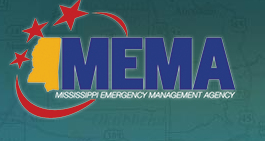
Courtesy MEMA
MEMA released a guide for how Mississippians can help with Hurricane Harvey relief efforts.
The Mississippi Emergency Management Agency released a comprehensive guide explaining how Mississippians can help those affected by Hurricane Harvey. Below is a press release from the agency, explaining how to donate, volunteer and help:
To donate to relief efforts:
The most effective way to support disaster survivors in their recovery is to donate money and time to trusted, reputable, voluntary or charitable organizations.
- Cash donations offer voluntary agencies and faith-based organizations the most flexibility to address urgently developing needs. With cash in hand, these organizations can obtain needed resources nearer to the disaster location. This inflow of cash also pumps money back into the local economy and helps local businesses recover faster.
- Please do not donate unsolicited goods such as used clothing, miscellaneous household items, medicine, or perishable foodstuffs at this time. When used personal items are donated, the helping agencies must redirect their staff away from providing direct services to survivors in order to sort, package, transport, warehouse, and distribute items that may not meet the needs of disaster survivors.
- Donate through a trusted organization. At the national level, many voluntary-, faith- and community-based organizations are active in disasters, and are trusted ways to donate to disaster survivors. Individuals, corporations, and volunteers, can learn more about how to help on the National Voluntary Organizations Active in Disaster (NVOAD) website. (Editor’s note: based on substantial reporting from ProPublica, the Red Cross does not have the best track record on flood response help.)
- In addition to the national members, The Texas Voluntary Organizations Active in Disaster (Texas VOAD) has a list of vetted disaster relief organizations providing services to survivors. Texas VOAD represents more than three dozen faith-based, community, nonprofit and non-governmental organizations.
To personally volunteer in disaster areas:
The State of Texas is asking volunteers to not self-deploy, as unexpectedly showing up to any of the communities that have been impacted by Hurricane Harvey will create an additional burden for first responders. The National VOAD has also noted the situation may not be conducive to volunteers entering the impacted zone and individuals may find themselves turned away by law enforcement.
- To ensure volunteer safety, as well as the safety of disaster survivors, volunteers should only go into affected areas with a specific volunteer assignment, proper safety gear, and valid identification.
- At this time, potential volunteers are asked to register with a voluntary or charitable organization of their choice, many of which are already in Texas and supporting survivors on the ground.
- The National and Texas VOAD websites are offering links to those who wish to register to volunteer with community- and faith-based organizations working in the field.
- Most importantly, please be patient. Although the need is great, and desire to help strong, it is important to avoid donating material goods or self-deploying to help until communities are safe and public officials and disaster relief organizations have had an opportunity to assess the damage and identify what the specific unmet needs are.
- Volunteer generosity helps impacted communities heal from the tragic consequences of disasters, but recovery lasts much longer than today. There will be volunteer needs for many months, and years, after the disaster, so sign up now.
FEMA Jobs:
There are a lot of questions and rumors about FEMA job postings for Harvey. If you’re interested in getting involved in the response, we want to make sure you’re working through trustworthy sources. To verify, please visit the rumors section of our Hurricane Harvey page: https://www.fema.gov/hurricane-harvey.
If you’d like to help out the FEMA mission as a temporary hire, visit: https://careers.fema.gov/hurricane-harvey
Comment